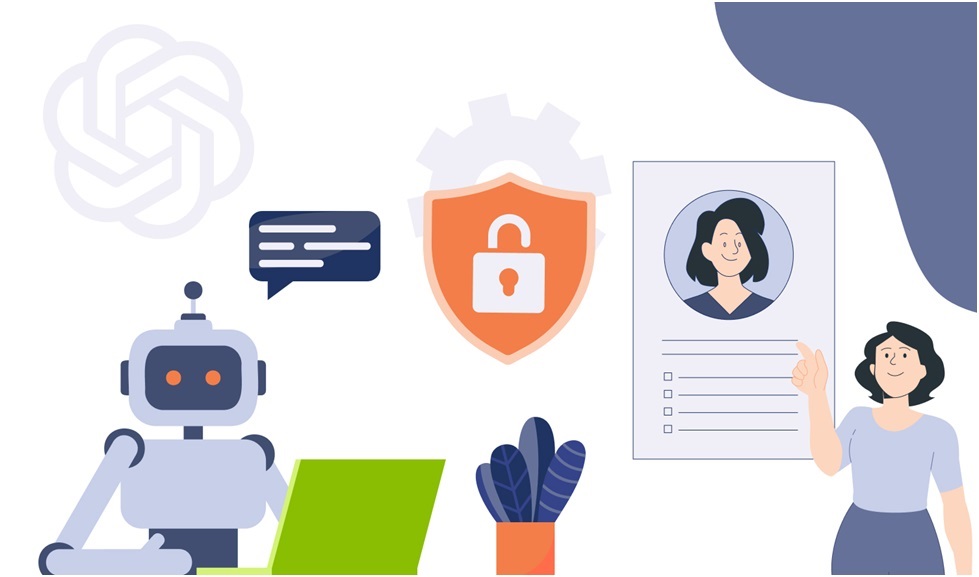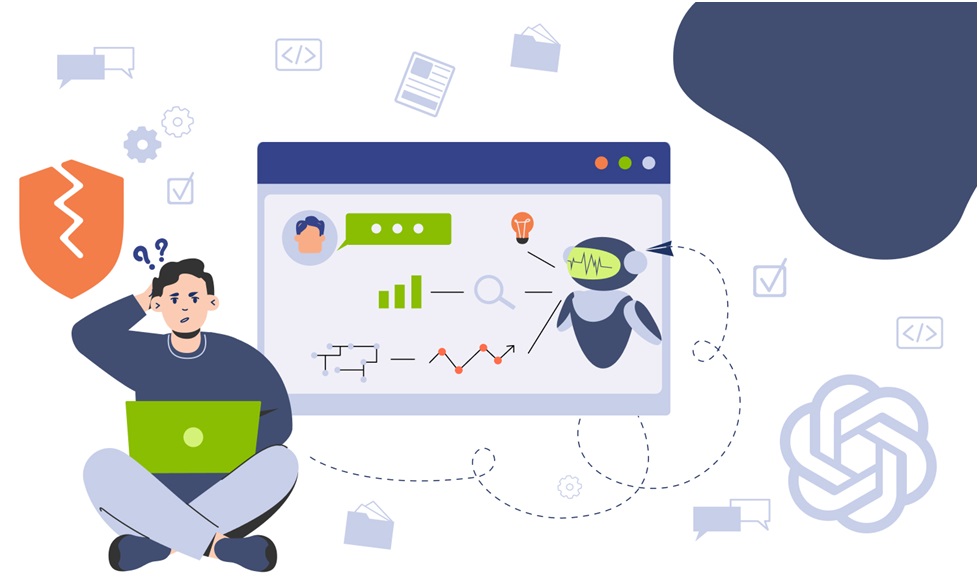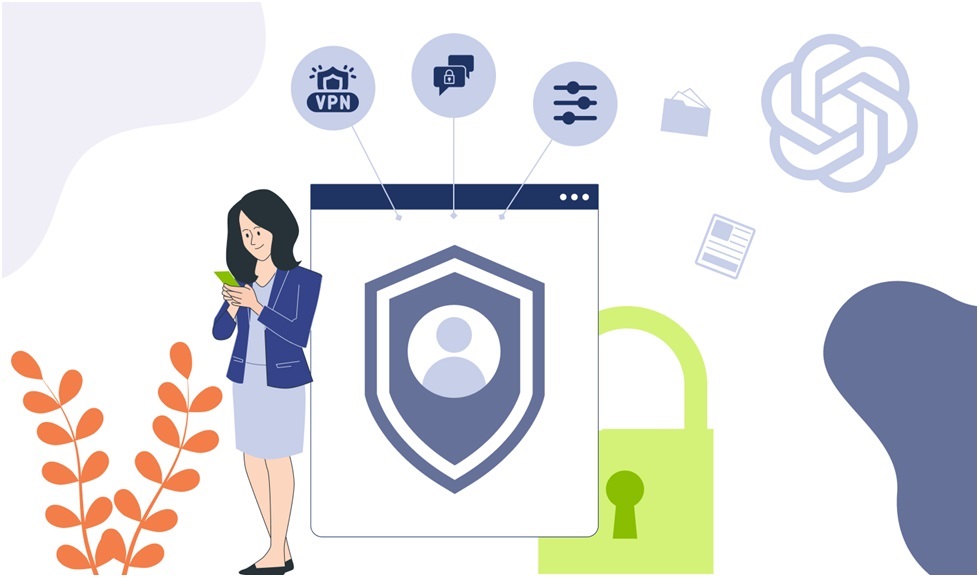
Last updated on : January 27th, 2024 by R Yadav
ChatGPT was one of the biggest things to come out of 2023. It broke history with 100s of millions of people flocking to the AI bot and getting their questions answered. People were amazed at how accurate the answers were and how much it sounded human. While all of these things sound good, and although ChatGPT has proved itself to be a valuable tool for millions of people from all across the globe, it's still essential to address the elephant in the room. There have been privacy concerns when it comes to using ChatGPT. So, does ChatGBT actually breach our privacy? We'll address this pressing concern in this guide, including the privacy implications of using ChatGPT. So, if you're ready, let's get started.

There are various privacy concerns regarding using ChatGPT, and the same can be said for any software that uses AI. However, for the sake of this article, we will only be focusing on ChatGPT. Here are some privacy concerns that can arise when you're using ChatGPT. It's good to be aware of these issues so you can take action accordingly, and these include:
ChatGPT absorbs a large amount of information since it needs sources from books, webpages, books, and articles to function. They did all of this without seeking any case-by-case permission. Specific data can be used to identify friends, family, ourselves, and even our location, which can lead to privacy concerns. According to their privacy policy, here is some of the data that OpenAI collects from users, including:
Since ChatGPT doesn't work like a typical search engine and you're having a conversation with it, it can create a false sense of security among users and lead them to share confidential details they usually wouldn't elsewhere. Since OpenAI collects all of this user content, privacy concerns are raised since this data never gets deleted.
One of the most significant risks of using ChatGPT or other AI-related tools is that your private and confidential data could be a part of a data breach. According to the Search Engine Journal, between 100,000 ChatGPT account credentials were compromised and sold on the Dark Web, and this happened between the period of June 2022 and May 2023. If your confidential information somehow ends up on the dark web, it can have bad consequences and compromise your privacy and security.
ChatGPT records everything that you type into it. As mentioned above, ChatGPT's Privacy Policy states that it can collect different information about you, such as your messages, the files you upload, and any feedback you provide. This proves to be a Cybersecurity risk as it also states that these conversations can be reviewed by its AI trainers so that they can enhance the user experience and train the AI system further. Not only is your data getting compromised, but it is being used to OpenAI's advantage.

Although ChatGPT takes some measures to protect the user's privacy, these measures may not be enough to truly protect your privacy and security and take it to the next level. It claims that all the conversations between the user and ChatGPT are end-to-end encrypted, and it also runs a Bug Bounty program so that only ethical hackers can find any security vulnerabilities.
However, you can never be too sure. Hence, it would help if you took personal responsibility to protect your privacy while using ChatGPT so that malicious actors don't exploit your sensitive and confidential data. Here are some of the ways you can enhance your privacy:
One of the most effective ways to enhance your privacy and security is to invest in a VPN for ChatGPT. A VPN masks your IP address and encrypts your internet traffic, keeping your data encrypted and away from being deciphered by cybercriminals and malicious actors.
When using a VPN with ChatGPT, you stay anonymous online with your IP address and location hidden. ChatGPT would not be able to associate the data with your IP address and other details that they may be able to get from your IP address.
You should keep your sensitive and confidential data to yourself and avoid sharing such information with ChatGPT. All of this data gets stored on OpenAI's servers, so anytime you're using ChatGPT, remember that they will have access to your data since they record and store it. Also, any of your sensitive and confidential data could easily be compromised if a data breach occurs.
Because of the privacy and security criticism, OpenAI introduced new data controls. You can disable your chat history through your account settings. Doing so will delete all of your chats after 30 days. However, that still won't stop OpenAI from using your data, so there's a way you can opt out of having your sensitive and confidential information being used by OpenAI. All you have to do is fill out this form; they will not use your information for training purposes.
ChatGPT and OpenAI are known to collect various information about you. Some of these are the standard information like your account and device information. However, that's not the problem. The problem arises when they collect and store the information you enter in the chats. And then, they provide this sensitive and confidential information to its AI trainers to improve their user experience and chats.
This data can quickly get into the wrong hands if, let's say, a data breach occurs. Anyone can use your data to gain unauthorized access to your online accounts or even worse. We understand how ChatGPT has proved to be a helpful tool for millions around the globe, and we aren't saying you can't use it. However, one must always be careful and take personal responsibility to enhance their privacy and security since we live in a digital age of uncertainty. If you aren't careful, you won't be able to protect your data from prying eyes.
Read Next: Benefits of Network Monitoring Devices in Businesses